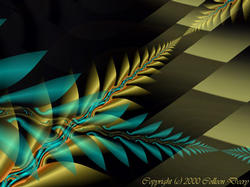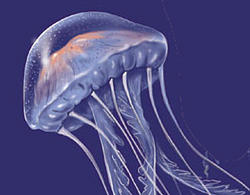| Thursday, April 10, 2003 |
| Choices and Democracy |
 What is emergent direct democracy? It is just many people being free to make choices, and the aggregate result of that, and the hope that the result can be fairly coherent. What is emergent direct democracy? It is just many people being free to make choices, and the aggregate result of that, and the hope that the result can be fairly coherent.
Democracy is that the people decide things - that they choose what they want. In most countries in the world, that has been reduced to a ritual of every few years letting the people choose among some candidates, and the individuals they elect will then make most of the big important choices for the following years. If that is at all worthy of being called 'democracy', it certainly isn't direct democracy, and there isn't either anything very emergent about it. Yes, if the people really, really, really want things to be different, and they manage to mostly agree on that, they can start a revolution of some kind, elect somebody different from what they're offered, or force the ground rules to be changed. But there's a very high threshold to that, and it is mostly avoided by keeping people dispersed, busy, but moderately content. Now, what would be all different would be if the democracy really consisted of all of us making choices, all the time. Not one choice per four years, but probably several or many choices per day. [ Organization | 2003-04-10 12:07 | 2 comments | PermaLink ] More > |
| Thinking Hats |
 One of Edward de Bono's numerous contributions to the discipline of creative thinking is the six thinking hats. The idea is basically that you are aware of what thinking and communication mode you are in - what hat you are wearing. That puts things in perspective, sorts statements in a meaningful way, and makes it less likely that people misunderstand each other. E.g. if you're wearing the black hat, you might be playing devil's advocate, and put attention on things that might not work. If that is clear, and announced up front, it is likely that people will take less offense to the criticism, and it is more likely to be useful. If you announce you're wearing a red hat, irrational emotional outbursts are more acceptable, and don't necessarily have to be analyzed logically. Etc. You can have a meeting using that system. Or you can use it in brainstorming, to categorize different kinds of ideas. Below is a more detailed explanation: [ Knowledge | 2003-04-10 13:39 | 2 comments | PermaLink ] More > |
| The Evolution of Governance |
 Elisabet Sahtouris speaks lucidly about how life works, how evolution works, and how we can learn great lessons from the intelligence of nature. Here's from a small article on the Evolution of Governance: Elisabet Sahtouris speaks lucidly about how life works, how evolution works, and how we can learn great lessons from the intelligence of nature. Here's from a small article on the Evolution of Governance:"In studying the Earth's evolution, the most fascinating story I know is that of ancient beings who created an incredibly complex lifestyle, rife with technological successes such as electric motors, nuclear energy, DNA recombination and worldwide information systems. They also produced - and solved - devastating environmental and social crises and provided a wealth of lessons we would do well to consider."That was two billion years ago, mind you. And we're not talking about extra-terrestrials, we're talking about our earthly ancestors, one celled microbes. Despite literally having no brains, they faced crisises very similar in structure to what we face today, and they developed peaceful synergetic solutions. "Their crisis came about when food supplies were exhausted and relatively hi-tech respiring bacteria ("breathers" with electric motor drives) invaded larger more passive fermenting bacteria ("bubblers") to eat their insides out - a process I have called bacterial colonialism or imperialism. The invaders multiplied within these colonies until their resources were exhausted and all parties died. No doubt this happened countless times before they learned cooperation.And, if it isn't already clear, your body is one of the results. A democratic cooperative society of billions of individual beings. Now, the question is, do you really want to come across as being more stupid than the bacteria in your intestines? It would be a bit embarrassing if we big complex beings with huge brains couldn't even figure out how to organize ourselves in a viable manner. If we're really stupider than the parts we're made of. Particularly when a several billion year unbroken succession of our ancestors has succeeded inpeccably until now. [ Organization | 2003-04-10 16:02 | 3 comments | PermaLink ] More > |